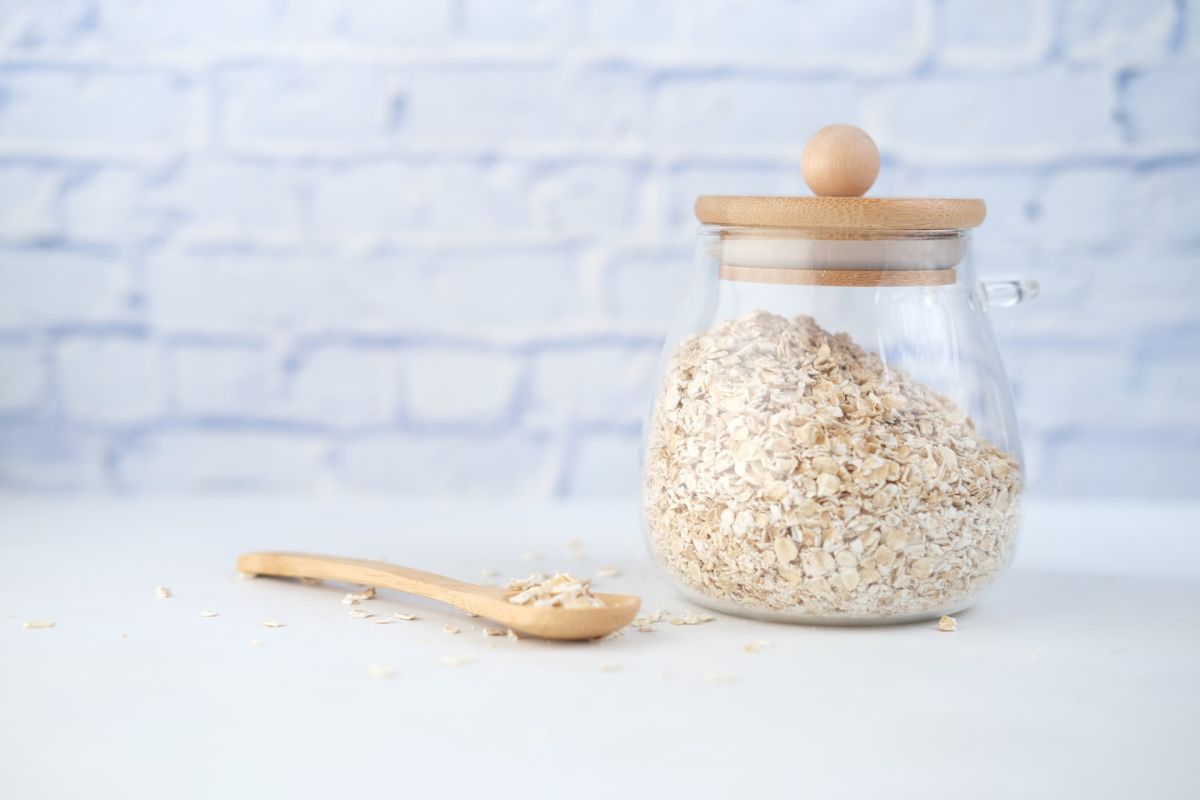Oatmeal is a common breakfast food staple, but more importantly, it’s a whole grain that’s packed with essential nutrients and has several reported health benefits, from lowering cholesterol levels, to boosting the body’s immune system.
But does it mean that oatmeal is good and recommended for those who have a fatty liver / NAFLD? It appears so, based on factual evidence and also my personal experience on the matter. This is what we’re going to talk about today!
Making the best choices when it comes to the things you eat is extremely important when dealing with a fatty liver. I’ve talked about all sorts of foods that you can and can not eat – make sure to read about them all here.
But getting back to oatmeal, we’re going to learn why it’s still a good idea to have it if you suffer from NAFLD, even though it’s a cereal high in carbs, but also how to eat it in order to make sure that you get all the benefits and cause no harm to your body.
Can You Eat Oatmeal With Fatty Liver?
Yes, you can eat oatmeal if you suffer from NAFLD. Mainly because oatmeal is a whole grain that contains minerals and vitamins that play a key role in supporting liver health.
Add to that dietary fibers that help the digestive system and carbs that are absorbed slowly and you already have the main reasons why oatmeal is good to have as part of your fatty liver diet.
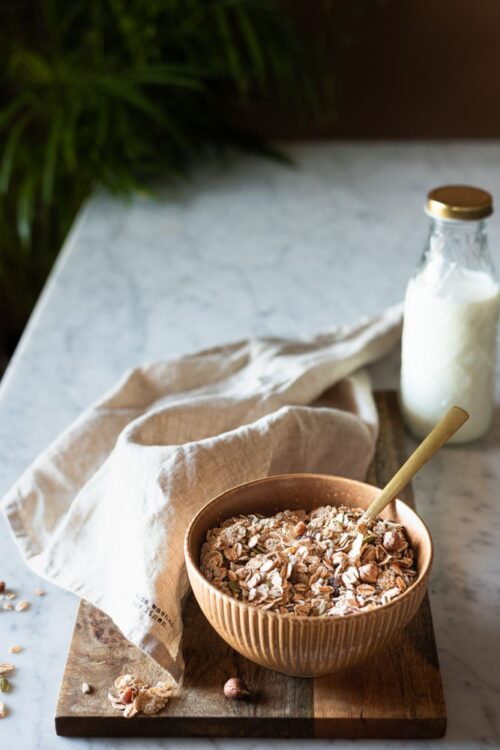
Getting more in depth, oatmeal is a good source of nutrients, including fiber, magnesium, protein, zinc, selenium, vitamin B1, iron, phosphorus, and copper – all of these being essential in keeping us healthy.
The fiber in oatmeal is of significant importance because it’s not just any fiber, but soluble fiber.
This particular fiber, called beta-glucan, is digested in the small intestines and can lower levels of low-density lipoprotein(LDL), a type of bad cholesterol by limiting its absorption into the bloodstream.
Oatmeal is rife with compounds known as polyphenols which are known for their potent antioxidant properties, as well as anti-itching, and anti-inflammatory properties.
The nutritional and health components of oatmeal make it a practical choice for consumption by anyone with fatty liver – and also a great choice for those who just want to eat a healthy diet.
IMPORTANT TO KNOW: Not all types of store-brought oatmeal remain healthy, mainly because they are served in combination with added sugars, flavors and other baddies – so read on until the end to learn how to make sure that you do choose the best possible oatmeal.
Best Oatmeal Brand to Eat
While any type of oatmeal that is 100% oats can be considered a good choice, if you don’t want to do the searching yourself, I have two recommendations for you below. Choose either one, as they’re both great!
Please note: I get commissions for purchases made through links in this article. However, this does not influence the price or the products I recommend.
Quaker Old Fashioned Rolled Oats
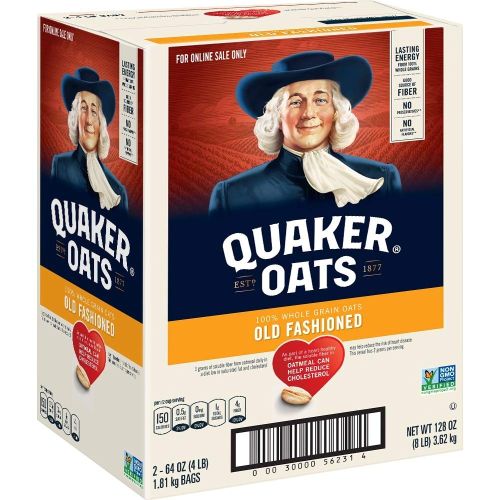
This is a 100% whole grain, sodium-free, non-GMO verified product that’s low in saturated fat and cholesterol.
It’s a great source of fiber that supports liver health and can keep unhealthy cholesterol at bay. Plus, you get a massive bag that will probably last you a few months!
I think that we’ve all heard about Quaker oats though and they don’t need any introduction. Just make sure that you get one that is 100% oats, like the one I am recommending.
Bob’s Red Mill Organic Extra Thick Rolled Oats
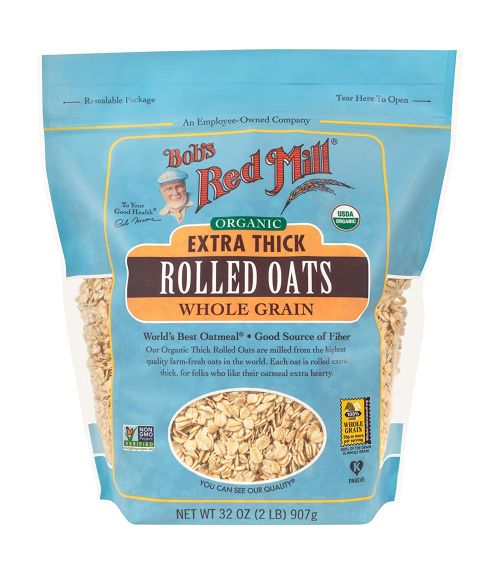
This is a hearty whole grain oat that’s derived from the highest quality organic oats according to the label. This product is tasty, has a great texture, making it a consumer favorite.
Why Is Oatmeal Good For Fatty Liver?
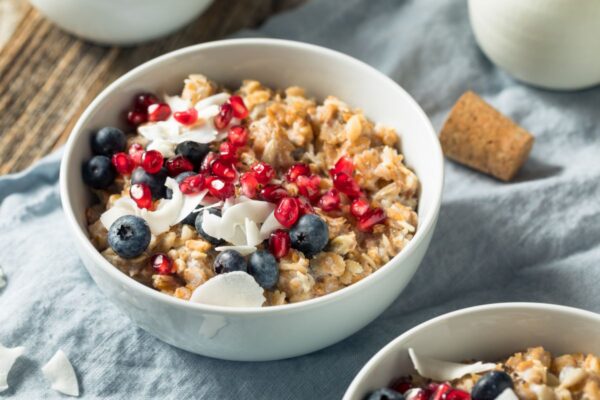
Oatmeal is good for fatty liver because of the physiochemical properties it contains. It has both lipid-reducing and body fat-reducing properties.
The beta-glucan fiber plays a key function in exerting the health benefits of oatmeal in preventing and improving fatty liver.
Apart from that, all those extra vitamins and minerals make it a great, healthy overall choice for us.
What kind of medical/scientific support exists that oatmeal is good for fatty liver and why is it beneficial?
In a recent animal model study, researchers’ findings suggested that oat, which is rich in beta-glucan, is metabolic-regulating and liver-protecting.
The results of clinical trials substantiate these effects of oat showed that eating oat reduced body fat and boosted lipid profiles and liver functions, and helps to ameliorate fatty liver.
Based on my own experience with the disease and reversing it (remember, I reversed my fatty liver naturally in one year and a half), I can say that Oatmeal at least does you no harm and doesn’t hinder your efforts of reversing fatty liver.
Oatmeal was actually the only type of cereal that I ate and you can see the recipes I used here. While I did not eat this daily and not even regularly, I did consume it pretty often – and still do.
At the very worst, it caused no extra harm – but I do believe that it played its role in helping me reverse my condition, in combination with all the other measures I took – especially following my slightly modified Mediterranean diet.
Even more, I personally know other people who ate oatmeal regularly – in one case, on a daily basis – and reversed their fatty liver.
This was also cumulated with a general, healthy eating and lifestyle improvements, but it also shows that oats can indeed be helpful.
How Much Oatmeal is Safe to Eat With Fatty Liver?

The recommended standard serving size of ½ cup dry oats is safe to eat with fatty liver. This is the amount I usually had for breakfast – sometimes less.
All oatmeal varieties aren’t the same though and so you want to make sure that you eat the right kind and do it the right way.
In other words, you should only consume steel-cut oats / Irish oatmeal, stone-ground oats (Scottish oatmeal), and rolled oats (old-fashioned oatmeal).
Other choices like instant oatmeal have to be checked to see if they don’t have added sugars or other unhealthy substances added (they usually do).
Also, make sure that they don’t have added sugars or sweeteners and are, basically, plain oats. You can add a bit of honey (which is safe for fatty liver) and lots of low-carb fruits like berries and cook the oats in water, low fat milk or a mixture of both.
Even though oats are high in carbs, we’re talking about carbs that come from whole grains, which are not absorbed quickly in our blood and don’t cause the massive blood sugar spike that plain sugar (or other refined carbs) do.
To achieve a reduction in LDL cholesterol levels, someone with fatty liver should consume roughly 5-10 grams of soluble fiber per day.
This portion should help in the regulation of cholesterol in the blood and keep unhealthy cholesterol away from the liver.
Eating more than 1cup of oatmeal in one serving is not encouraged though. Remember, when it comes to fatty liver: moderation is key!
Conclusion
As you saw in today’s article, oatmeal can indeed be eaten if you have a fatty liver. I personally had it regularly and had no problems with that and I also know many people who consumed this regularly as part of their fatty liver diet.
So if you like oatmeal aka porridge, then you can safely continue to have it, assuming that you don’t eat the ones with added chemicals, sugars and other bad things.
Plain oats with water/milk and fruits are the best (and you can add a bit of honey if you really heed to).

I was diagnosed with a fatty liver back in 2014 and managed to reverse it by mid-2015. Since then, I’ve been studying it, continuously updating my knowledge with the latest scientific findings and practical approaches to give others the help they need to reverse their condition.
My approach to managing fatty liver is holistic, balancing scientifically-backed information with real-life, practical advice based on personal, direct experience.
I am also the admin of the Fatty Liver Support Group on Facebook and the Fatty Liver Subreddit.

